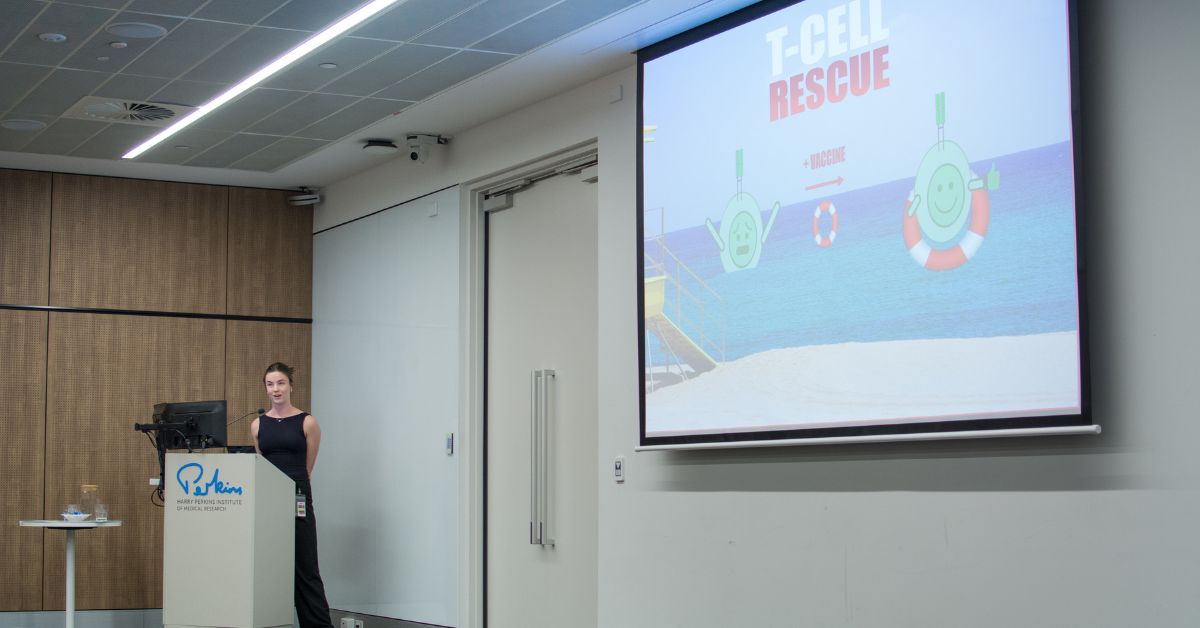Congratulations to our NCARD students on their impressive Three-Minute Thesis (3MT) presentations and poster displays at the 2024 Annual Scientific Meeting (ASM).
At the ASM, students summarised their research in just three minutes using a single PowerPoint slide. Similar to an elevator pitch, they were challenged to present the core of their research to an audience that may be unfamiliar with the field. To do this, our students elected to use a range of analogies.
This was a great chance for them to practice communicating about science. It will help them prepare for a future where they must talk to a diverse range of people, not only other scientists but patients, donors, regulators, funders, and the general public.
From laundry to light switches: An afternoon of witty research analogies
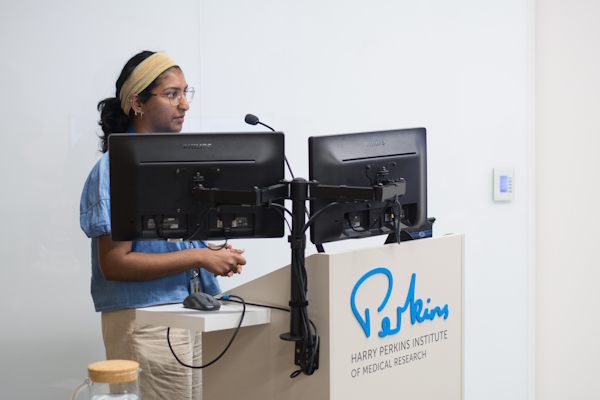
Enaara Pussegoda creatively conceptualised the process of removing stubborn stains from laundry to boosting cancer treatment efficacy. She compared radiotherapy to a pre-treatment stain remover that loosens tough stains (cancer cells) before the ‘main cleaning agent’ (chemotherapy) can effectively remove them.
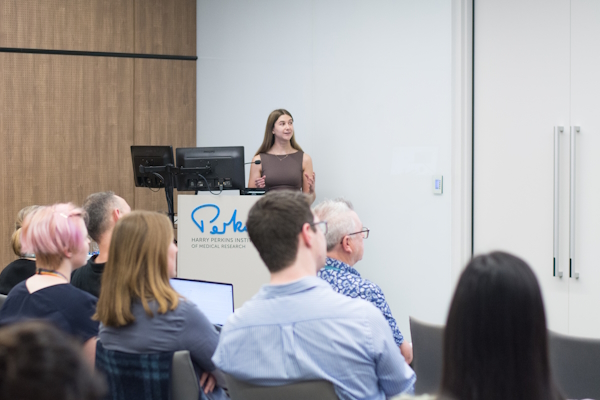
Naomi Damstra engaged the audience with an analogy comparing tumours to missiles fuelled by copper. She explained that by reducing the availability of free copper, the tumour’s fuel supply can be severed, effectively disarming the ‘missiles’ and allowing the immune system to dismantle the tumour’s defences.
All student presentations were strong, making it difficult for the audience to choose a favourite. However, two presentations stood out— Isla Baughman received highly commended, and Ella Dickie was named the winner.
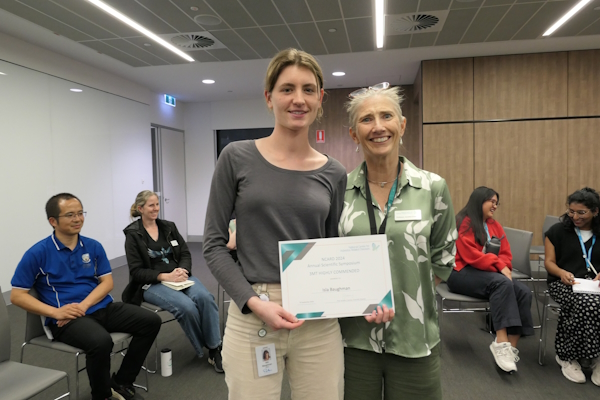
Isla described immune checkpoints in T-cells with a ‘light switch’ analogy. She explained how cancer cells ‘turn off’ these switches to deactivate tumour-fighting T-cells, ensuring their survival. While Immune Checkpoint Inhibitor (ICI) treatments can restore T-cell activity, they have limited effectiveness in mesothelioma patients. Isla’s research explores how cholesterol-lowering drugs might improve ICI treatments by ‘switching the lights back on’ for mesothelioma patients.
Watch Isla’s presentation here.
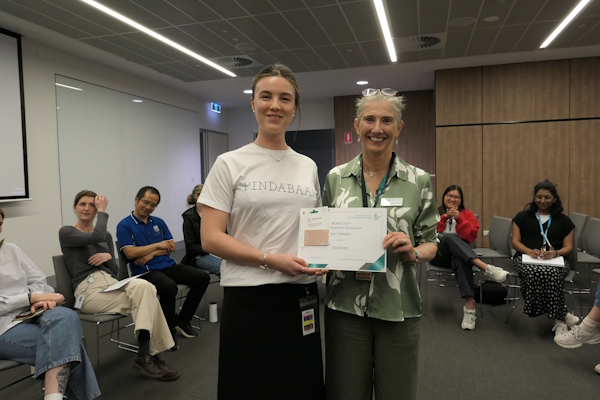
Ella Dickie, the 3MT session winner, used a familiar scene from Sydney’s Bondi Beach to describe exhausted T-cells as tourists caught in a strong rip. She compared cancer vaccination to a life preserver, giving these tired T-cells renewed strength to control tumours.
Watch Ella’s presentation here.
3MT participants
- Enaara Pussegoda: The potential synergistic mechanism of combining radiotherapy and ferroptosis in the treatment of mesothelioma
- Helee Patel: Can radiotherapy’s hidden power reprogram macrophages to boost the body’s defence against cancer?
- Ella Dickie: The effect of neoantigen cancer vaccination on exhausted T cells
- Siddhida Shannigrahi: Comparing and understanding why LNP-peptide vaccine works better than mRNA vaccine in preventing and treating mesothelioma
- Callum Flanagan: Exploring the causes of invasion and metastasis in mesothelioma
- Naomi Damstra: C u later mesothelioma
- Isla Baughman: Cutting cholesterol and cancelling cancer
Poster Presentations and Public Lecture
The 3MT session took place on the first day of the ASM. In the evening, a public lecture was held, where expert speakers shared the latest advancements in asbestos-related disease management, science, and care. The event attracted a varied audience of patients, researchers, students, non-profit representatives, industry professionals, and families in person and online.
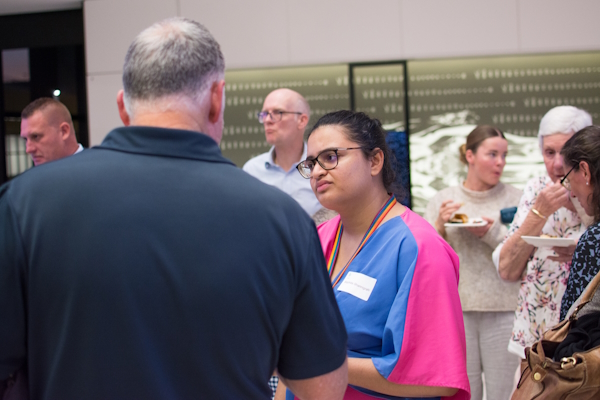
After the lecture, attendees moved to the Perkins foyer for refreshments and an interactive poster session. Students stood by their research posters, distilling complex scientific concepts into accessible explanations for community members.
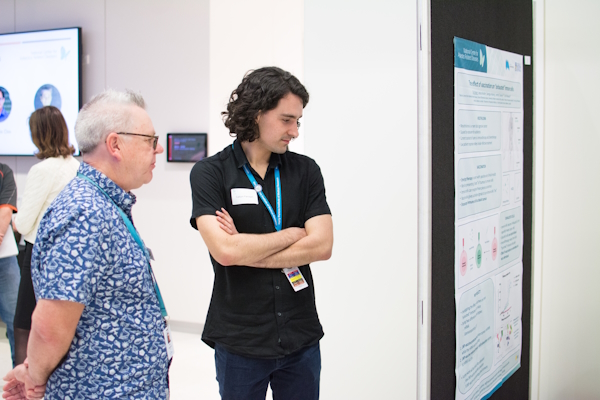
In a friendly competition, the public was invited to vote for the most compelling poster. This was a great way to get people involved and help students learn how to explain their research to people who were not experts in the field.
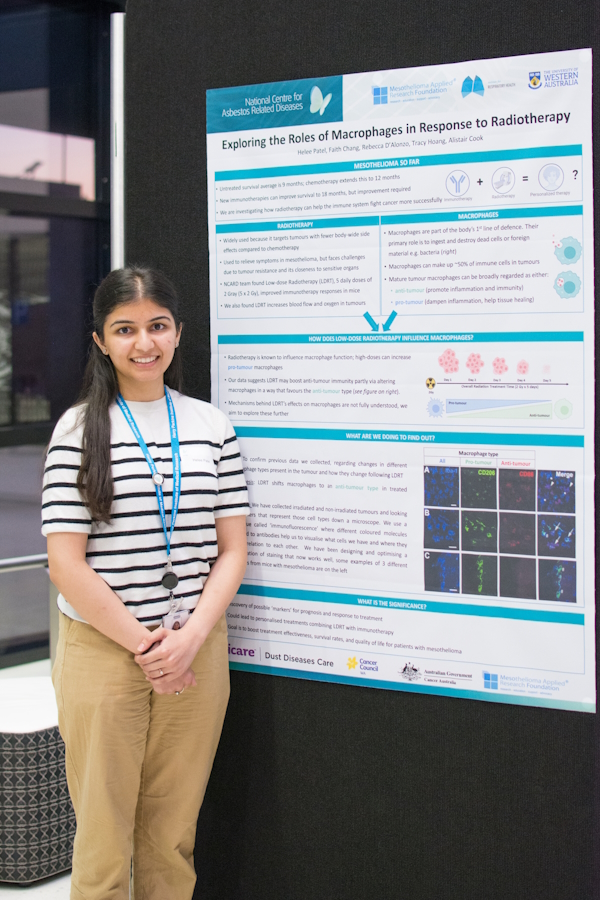
Ella’s poster, ‘The effect of vaccination on exhausted immune cells’, won the top honour, reflecting her ability to present her work in an accessible and compelling way.
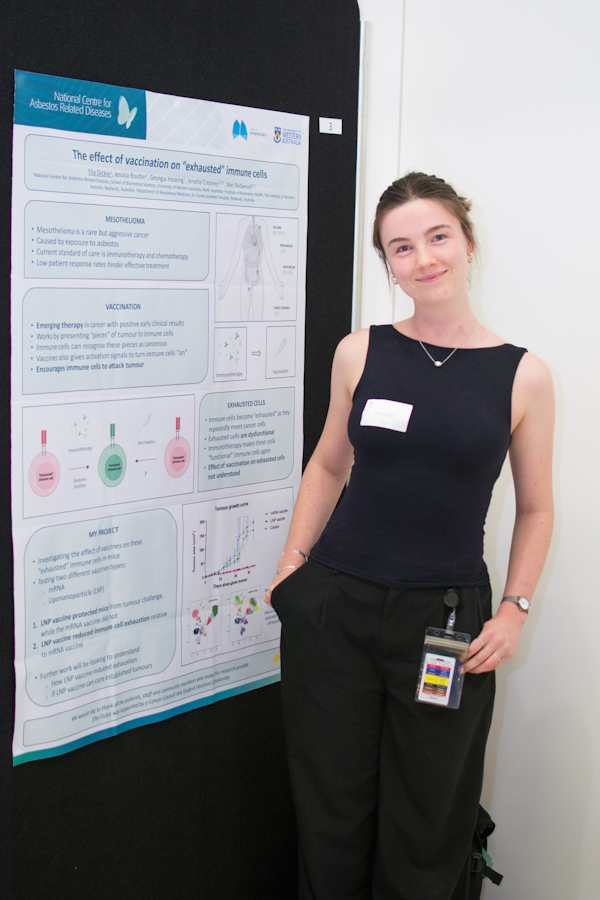
As 2024 draws to a close, NCARD is immensely proud of our students and their progress in both research and science communication skills. We sincerely thank everyone who attended the public lecture and participated in the poster voting.


